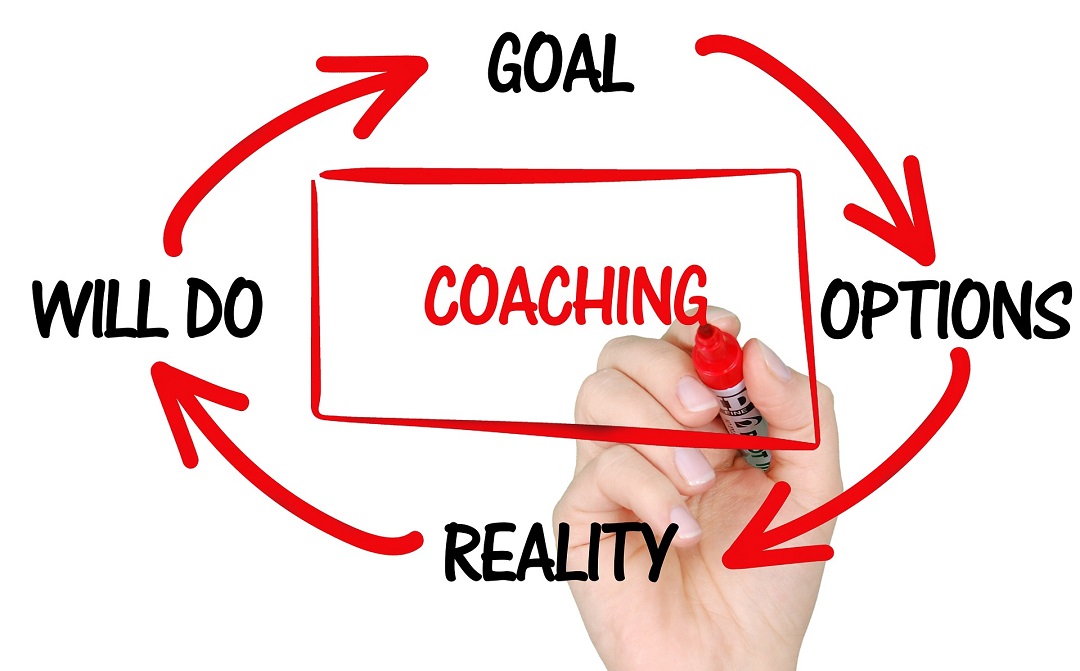Effective coaching models can be beneficial to motivate employees, boost productivity and morale, as well as create a more positive and open company culture. Quality coaching and mentoring, rooted in a deep understanding of one’s strengths, are often at the heart of many success stories in any career or business. Every coach has their unique approach, but the most effective strategies start with identifying individual strengths. The HIGH5 strengths assessment is a powerful tool that provides this crucial foundation, enabling coaches to tailor their methods to each client’s unique talents.
By starting with a clear picture of your strengths, you’re better equipped to learn and apply coaching strategies that resonate with your natural abilities, making you a more effective motivator and mentor. Like with anything else, there are also ineffective ways to coach. If you end up using an ineffective strategy, you may wonder if coaching has any true benefits.
Without the proper strategies in place, your coaching can be rendered completely useless. There is good news, though: the top forms of coaching are easy to follow and implement in any industry. In this article, we will give you examples of coaching models from coaching professionals. You will be well-equipped to start a coaching journey after understanding these tips.
What is a coaching model?
A coaching model is a structured framework that guides the coaching process. It typically involves steps like goal-setting, assessment, planning, and action to help individuals achieve specific personal or professional objectives.
The theory behind coaching models
There are a number of careers and life coaching models out there, but they all have a somewhat similar goal. The goal of coaching is to improve an individual’s life in some way, whether it be through helping them develop inner confidence or pursue their career interests. A professional coach assists people in identifying where they currently are in their careers and then uses strategies to help that individual achieve their coaching goals. In general, every coaching model framework has a few similarities.
Most coaching models follow a similar structure: establishing a personal or career goal, understanding one’s current situation, exploring options to achieve that goal, determining potential roadblocks, and drafting an action plan that’s consistently reevaluated. However, at HIGH5, we believe that truly effective coaching starts even earlier – with a deep understanding of your inherent strengths. Our scientifically backed strengths assessment provides this critical foundation, illuminating your unique talents. This self-knowledge transforms each step of the coaching process.
Your goals become more aligned with your natural abilities, your current situation is viewed through the lens of your strengths, and potential roadblocks are reframed as opportunities to apply your talents in new ways. From this strengths-based foundation, each coach then adds their own twists, creating a truly personalized and empowering coaching experience.
Pro Tip From HIGH5
Before diving into any coaching model, take the HIGH5 strengths assessment. Understanding your top strengths will help you select a coaching approach that naturally aligns with your talents. For example, if ‘Problem Solver’ is one of your strengths, you might resonate with the OSKAR model’s solution-focused approach.
15 effective coaching models
GROW coaching model
The GROW model, developed by John Whitmore, is likely the most famous coaching model. It comprises four major stages: selecting a goal, analyzing your current skills, determining options to achieve the goal, and finally selecting the best option and committing to it. At HIGH5, we’ve found that integrating our strengths assessment into the GROW model dramatically enhances its effectiveness. When analyzing your current skills in the ‘Reality’ phase, our assessment provides a scientifically validated view of your top strengths.
This isn’t just a list of skills, but a deep dive into your innate talents. Armed with this self-knowledge, you can set goals that truly resonate with your nature in the ‘Goal’ phase. In the ‘Options’ stage, you’ll brainstorm strategies that leverage your unique strengths, making each option more viable and motivating. By the ‘Wrap-up’ phase, you’re not just committing to a plan, but to a path that feels authentically yours.
Pro Tip From HIGH5
In the GROW model’s ‘Options’ phase, don’t just list generic strategies. Instead, craft each option to leverage one of your top HIGH5 strengths. For instance, if ‘Deliverer’ is a strength, one option might involve breaking your goal into a series of small, achievable tasks—a approach that naturally energizes you.
OSKAR
This model (sometimes called the OSCAR coaching model) originates from prior solution-focused approaches; it focuses on solutions rather than problems.
There are five steps to this technique: outcome (evaluating the length of your coaching sessions, how long one needs to work to achieve a goal), scaling (evaluating how far along the client is in relation to their goals), know-how (understanding skills needed to achieve the goal), action (taking steps to achieve the goal/commitment to action), and finally, review (optimizing the strategy).
CLEAR
This model is initially developed by Peter Hawkins. It focuses on helping clients truly understand their goals. In CLEAR coaching, you must listen to the client to understand their strengths and weak points. Then, explore potential ways to take action and create a plan for achieving the desired outcome. Finally, ask your clients for feedback on how to improve future coaching sessions.
STEPPA
Developed by Angus McLeod, one of the pioneers of coaching, STEPPA stands for subject, target, emotion, perception, plan, pace, and action. When coaching individuals with this method, first identify their goals and skills.
Then, set a SMART goal. Use emotions to your advantage in this model. Coaches guide clients on the best way to achieve a goal and later create a step-by-step plan to continue forward. Since it is impossible to plan perfectly, adapting to one’s environment is also taught and encouraged by STEPPA coaches.
Block removal coaching
This type of coaching is most effective when individuals are unsure, anxious, or resistant to growth. Usually, this causes people to think negatively and abandon their goals. Coaches work to instill confidence in their clients and overcome any potential challenges they encounter throughout their journey.
3-D coaching model
The 3-D Coaching Model is perfectly aligned with our philosophy at HIGH5. This approach helps individuals determine what they truly want in life and career by first identifying their unique strengths and talents. This is where our strengths assessment becomes an invaluable tool. Instead of relying on guesswork or superficial personality tests, HIGH5 uses a scientifically validated method to uncover your top five strengths. These aren’t just skills you’ve learned, but deep-seated talents that energize and define you.
With this profound self-knowledge, deciding what you truly want becomes much clearer—your aspirations naturally align with your strengths. Then, armed with HIGH5’s detailed strength descriptions and action strategies, coaches can guide you in applying these talents to achieve your goals, turning your inherent qualities into powerful tools for success.
Pro Tip From HIGH5
After taking the HIGH5 assessment, spend time with each strength’s description. Look for patterns in past successes that align with these strengths. For example, if ‘Empathizer’ is a top strength, you might realize your most fulfilling achievements involve understanding and supporting others. Use these insights to shape career goals that let you empathize daily.
Innovation coaching model
The coaching business is what this model focuses on. These coaches enjoy working with innovators and entrepreneurs, so it may not be the best model for team coaching. It focuses on getting people comfortable with the risk/the unknown, experimentation, creativity, and innovation.
Bigger thinking model
In this approach to coaching, clients are challenged to achieve more than they ever thought possible. Coaches boost an individual’s confidence and work on getting their clients comfortable in uncomfortable settings. The client also expands their thinking methods and learns new perspectives.
Shift coaching model
Sometimes, people need a mindset shift to be coached more effectively. This is where the shift model comes in. This model changes the client’s perspective on goal achievement. They are exposed to new strategies to tackle their goals and challenges. At first, they reevaluate their situation, and later they move forward with a new mindset.
Executive Coaching
A bit similar to the innovation coaching method, executive coaching centers around coaching people to become leaders. They evaluate current leadership approaches, create leadership skill development plans, and address specific business and personal challenges. In the end, this strategy is coaching for performance: leaders consistently reevaluate the impact coaching has on company revenue and profits.
COACH Model
The COACH model stands for Connect, Outcome, Awareness, Course, and Highlights. It focuses on connecting with the client to establish a meaningful relationship and ensure mutual understanding, setting clear outcomes that define the client’s goals, increasing awareness about the client’s strengths, challenges, and perspectives, developing a course of action to achieve the desired results, and providing highlights or feedback to track progress and celebrate successes.
AOR coaching model
AOR stands for Action-Oriented Relationship. This model encourages clients to take action in a way that aligns with their goals and values while also creating a strong, supportive relationship between the coach and the client.
Implicit explicit formal informal coaching
This model combines different types of coaching. Implicit coaching happens naturally during daily interactions, while explicit coaching is deliberate and structured. Formal coaching is organized with clear objectives, and informal coaching happens more spontaneously during regular conversations. Coaches use a mix of these based on the situation.
Directive coaches
Directive coaches provide clear instructions, guidance, and solutions. They take an active role in shaping the client’s behavior by directing them toward specific actions. This style is beneficial when the client needs clear guidance to resolve immediate problems.
Fuel
The FUEL model stands for Frame, Understand, Explore, and Layout. Coaches first frame the conversation to define objectives, understand the client’s situation, explore possible solutions, and then layout an action plan. It’s a structured way to drive productive coaching conversations.
What is coaching at work?
Coaching at work involves helping employees reach their full potential by improving their skills, behaviors, and performance. It focuses on setting clear goals, providing feedback, and fostering continuous improvement. Workplace coaching enhances communication, teamwork, and individual growth.
Types of coaching models
There are multiple subtypes of coaching methods. They are further categorized by the specific approach each method recommends and who the ideal client is. Here are some examples of models:
Organizational and business coaching models
This coaching model is different from other coaching styles, as it focuses less on the client’s direct goals and more on the entire organization’s needs. It can be a form of team coaching. This model identifies business goals and establishes strategies individuals and teams can use to achieve those goals. Some of the most common coaching styles can be forms of business coaching.
Example strategies: OSKAR/OSCAR coaching model, STEPPA, and GROW coaching.
Leadership development coaching models
Leaders need specific coaching approaches to help them succeed. This type of coaching focuses on giving leaders clarity on their company mission and supports executives when making challenging decisions. Additionally, coaches can offer multiple opportunities for leaders to expand their skill sets for the benefit of their organization. However, they generally focus on improving leadership and communication skills.
Example strategies: action-centered leadership (developed by John Adair), entrepreneurial/innovation coaching, and transformational leadership.
Executive career coaching models
Being an executive often comes with a specific set of struggles that only certain coaches are able to address. One-to-one coaching is the best way to conduct executive coaching, as it is best to be intimate with executives. Goals are often lofty and challenging with this model, but clients are pushed to achieve more than they ever thought possible. It is a great strategy to use for career development, especially later on in one’s career journey.
Example strategies: calendar-driven coaching, victim vs player coaching, and event-driven coaching.
Group and team coaching models
Group and team coaching aims to help entire organizations achieve their goals instead of focusing on each person individually. It focuses on communication skills, leadership quality development, and team unity. Through uniting a team, coaches can boost a business’s productivity and an entire team’s drive, thus driving forward profit and revenue. There is some team coaching pitfalls, though, which is mainly that it is not a personalized coaching strategy.
Example strategies: high commitment and big-ticket sales coaching, coaching large/established companies, and peer coaching.
What are the 5 styles of coaching?
Directive coaching
Directive coaching involves the coach providing specific instructions, guidance, and feedback, essentially leading the conversation and decisions.
Pros:
- Fast and efficient in providing clear directions.
- Useful in high-pressure situations or with inexperienced individuals.
Cons:
- Limits creativity and individual autonomy.
- May cause dependence on the coach.
When to Use: Ideal when quick decisions are needed, during crises, or when guiding novices who need structure.
Non-directive/Facilitative coaching
In non-directive coaching, the coach asks open-ended questions to help individuals find their own solutions, fostering self-awareness and independent thinking.
Pros:
- Encourages creativity, ownership, and personal growth.
- Builds confidence and problem-solving skills.
Cons:
- Time-consuming and may frustrate those seeking immediate solutions.
- May be challenging for individuals who prefer clear guidance.
When to Use: Best for experienced individuals seeking to develop critical thinking and autonomy.
Autocratic coaching
Autocratic coaching involves the coach making all decisions with minimal input from the individual being coached. It is top-down and authoritative.
Pros:
- Maintains control and ensures tasks are completed to standard.
- Effective in high-stakes situations requiring precision.
Cons:
- Discourages collaboration and can lower morale.
- May lead to resentment or lack of motivation.
When to use: Useful in environments requiring strict adherence to rules, such as the military or safety-critical industries.
Democratic/Collaborative coaching
Democratic coaching emphasizes collaboration between the coach and the individual, encouraging input and shared decision-making.
Pros:
Promotes team cohesion, motivation, and buy-in.
Leads to creative solutions by integrating diverse perspectives.
Cons:
Slower decision-making process.
Potential for conflict if too many opinions clash.
When to use: Best for team environments or when working with individuals who benefit from shared leadership and decision-making.
Laissez-Faire coaching
In laissez-faire coaching, the coach provides little to no guidance, allowing individuals to make their own decisions and take full control.
Pros:
- Encourages full autonomy and independence.
- Suitable for highly experienced or self-driven individuals.
Cons:
- Can lead to confusion, lack of direction, or inconsistent performance.
- May result in a lack of accountability.
When to use: Effective for highly skilled individuals who thrive in self-managed environments.
Pros and cons of coaching models
Every type of coaching has a list of benefits and drawbacks that accompany it. For instance, team coaching can address the overall weak points of a company extremely quickly. However, it can leave certain individual flaws, which could further develop over time and cause issues. Take a look below to see the common pros and cons of pursuing coaching interventions:
Pros of coaching models
Firstly, there is a strong link between coaching and employee performance. Employees will be able to identify their strengths and apply them each and every day. A commitment to coaching also demonstrates that you care about employee success and that you value their hard work. And, valued employees are more likely to be productive and driven at work.
Effective coaching creates great internal hiring opportunities. Instead of spending an extreme amount of money seeking outside hires, you will be able to identify quality talent from within your organization. Your employees already understand your company’s goals, values, and mission. With some assistance from a coach, they can be better prepared to take on senior positions when they inevitably become available.
The ultimate coaching benefit is the boost in profit and revenue. Coaching engages employees, improves productivity, and helps individuals and teams accomplish their goals. This all creates a more stable, happy, and efficient workforce. You will also notice a decreased operating cost through the money saved on internal hiring.
Cons of coaching models
It can sometimes be difficult to find a capable coach. Sometimes, coaches can charge hefty fees, especially if they must mentor large numbers of employees. Executive-level coaching can also be costly. If the coach is inexperienced, they may not have the best insights. Their advice could be ineffective at supporting you, your employees, or your business.
Additionally, employees can be hesitant about the process of coaching. Coaching simply cannot work if your employees are uncommitted or uninterested in hearing the coach’s feedback. They must have the right mindset before they start a coaching program, and this can be difficult to acquire for certain employees. Unfortunately, coaching does take work – it is not simply a one-and-done deal.
It requires attention to detail, planning, and prioritization. Coaches should be committed to meeting with clients consistently and keeping them accountable, even if it means making them a bit uncomfortable. The coaching mindset should be implemented into an employee’s daily life, which takes time. If you do not prioritize coaching, the entire program may end up being useless.
How to measure and improve coaching models?
Measuring a coaching process’s success can be challenging, but it does not have to be. Consider the value a coach brings to you. Ask yourself which new information you learned, if you could practically apply the new knowledge, how often you are using this knowledge, whether or not there is a visible impact on your business, performance, or career, and whether or not the coaching brings more value to you then the price of coaching.
You can use specific metrics to evaluate a coach’s impact on your performance. To do this, refer back to your goals. If you set specific SMART goals, then measuring whether or not you accomplished your goal should be simple. For instance, if your goal was to boost your productivity by 25% in the next 3 months, consider seeing how much your performance is increasing.
If you are a writer, did the number of words written rise by 25% in 3 months? If you are a salesman, did you increase the number of calls made by 25%? If yes, then you can clearly tell the coaching is helping you achieve your goals.
If you want to improve your coaching process, ensure that your coach’s approach to motivation aligns with your personality. Also, consider how specific your goals are. If they are not SMART, start using the SMART goal-setting method with your coach. It will make progress tracking simpler.
Pro Tip From HIGH5
Create a “Strengths Journal” or get our Strengths Planner to measure your coaching progress. Each week, note instances where you applied your HIGH5 strengths, how it felt, and the outcomes. Over time, you’ll see patterns—perhaps your ‘Strategist’ strength consistently helps in project planning. This concrete evidence of your strengths in action is a powerful indicator of effective, personalized coaching.
Best books for coaching and coaches
Coaching books can be a great source of inspiration and a detailed way to learn more about the art of coaching. A few of the best books on coaching include:
1. The OSCAR Coaching Model: Simplifying Workplace Coaching – Andrew Gilbert and Karen Whittleworth
While the OSCAR model focuses on managers, it can be applied to any coaching process. The text clarifies a manager’s role during coaching and gives tips to help managers increase employee performance. Readers are given a practical framework to evaluate current performance and continuously improve.
2. Performance Coaching Toolkit – Will Thomas and Angus McLeod
This book outlines a toolkit full of useful coaching strategies and ways to improve, whether you are an employee, manager, leader, or parent. The tips and straightforward and simple to apply. The outline is useful for most individuals; whether you are completely new to coaching or if you are a professional, McLeod and Thomas will likely teach you something new about coaching approaches.
3. The Gifts of Imperfection: Let Go of Who You Think You’re Supposed to Be and Embrace Who You Are – Brene Brown Ph.D. L.M.S.W.
Brene Brown’s book is specifically about life coaching. Brown presents the steps necessary to live a wholehearted life or a life that is carefree and free of fear. She divides her book into guideposts, which help readers live a more authentic life with simple tips. There are usually multiple components to each guidepost, and the book has sold millions of copies due to its easy-to-follow advice.
4. Grit: The Power of Passion and Perseverance – Angela Duckworth
Most goals require persistence and growth to be overcome. Duckworth explains how one can use the power of grit to destroy any goal you or your coach sets for you. She utilizes personal, celebrity, and historical examples to make a compelling case for grit application in coaching. All in all, the text manages to be both lighthearted and insightful, as it provides a multitude of ways character-building plays a role in coaching and goal attainment.
5. Mindset: The New Psychology of Success – Carol Dweck
Mindset is undoubtedly key in succeeding as a coach. Carol Dweck is a world-famous Stanford-trained psychologist and in this guide, Dweck explains the power of mindset and how every single activity we partake in is affected by our mindset. She categorizes mindsets into two main categories: fixed and growth mindsets. She describes how individuals can change their lives and achieve success through a mindset change. Many of the strategies described by Dweck can be utilized by coaches to help their clients overcome mental barriers.
Coaching models FAQ
What is the coaching model in education?
Instructional coaching models are often utilized in educational settings. Instructional coaches identify goals, create a teaching strategy to achieve the goal, and finally implement a teaching strategy to assist students and regularly reevaluate their teaching technique until the teacher hits the goal they set. Often, educational coaching relies on student input and test scores to evaluate the impact of coaching.
What are the coaching models in sports?
Sports coaching should center around the individual athlete’s goals. Thus, an individual coaching approach would be most beneficial. For go-getter athletes, a more laissez-faire coaching approach would allow them to search for meaning and explore their skills more independently. Coaching is often focused on growth and avoiding stagnation; athletes should be consistently improving with the help of their coaches.
What is the most famous coaching model?
The GROW model is the most famous coaching model. It stands for Goal, Reality, Options, and Wrap-Up, providing a structured approach to setting and achieving objectives.
What is the 5S model of coaching?
The 5S model of coaching focuses on five principles: Sort (Seiri), Set in Order (Seiton), Shine (Seiso), Standardize (Seiketsu), and Sustain (Shitsuke). It’s designed to create clarity, establish direction, build skills, and provide ongoing support to achieve long-term success.








